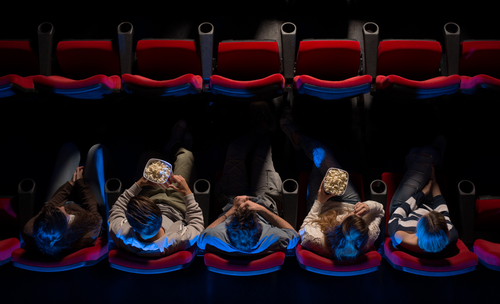
Obsessive, dedicated, committed, wildly passionate movie-goers and movie watchers are often given a similar criticism: that they don’t live in the real world. Absorbing the storyline lives of others in fictional, or even nonfictional worlds is dangerous, some object, because they aren’t the real life of the observer. It is true that people can become lost in the world of cinema in an unhealthy way, choosing the compressed tropes of narratives over the narrative of their own lives. It is also true that cinema therapy is a proven experiential approach to helping people actively heal the narratives of their lives which are too painful for them to own as their own stories. By watching the stories of others onscreen, someone in recovery from trauma can tune into some of the stories of their own lives and find healing that may otherwise have been impossible.
Black Panther was a box office smash hit in the spring of 2018. For the first time, a major blockbuster comic book movie featured a predominantly African-American cast, centered in African inspired culture, with a leading hero played by an African-American male. Articles swarmed the media by the dozens about the importance of representation and the small step this film took for minority visibility in Hollywood. In August of 2018, Crazy Rich Asians became another hit success with an entirely Asian ensemble. Viewers around the world for both of these landmark films expressed the deep, visceral sense of validation they received for seeing people who “looked like them” up on the big screen- even if the characters were having other worldly adventures. What viewers saw on the screen spoke to the intimacies of their lives according to the specific circumstances of who they are.
The same experience applies to cinema therapy in trauma recovery. Watching a movie where someone experiences a similar trauma event allows us to say “That looks like me” in a way we may never have been able to say so before. Touching trauma memories can feel dangerous. Cinema therapy and psychodrama helps support trauma recovery by providing a comfortable distance for a very real experience which can help trauma survivors heal. Rather than continue to live inside of the isolating experience of trauma without any representation, suddenly, we are able to observe our trauma from the outside for the very first time, giving us the awareness and liberation we desperately need to continue feeling through our recovery.
You can walk through your trauma. The Guest House Ocala offers residential treatment programming for trauma, addictions, and related mental health issues. Call us today for information on our customized programs and availability: 1-855-483-7800